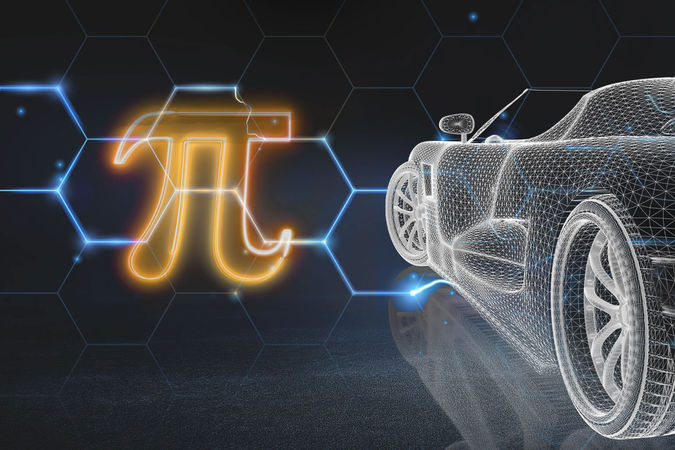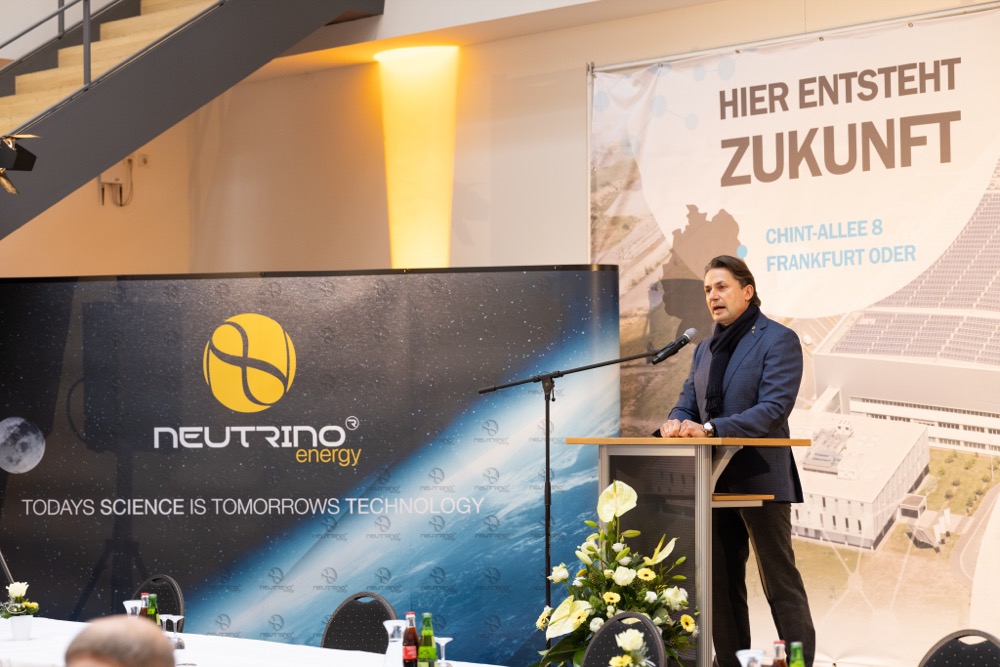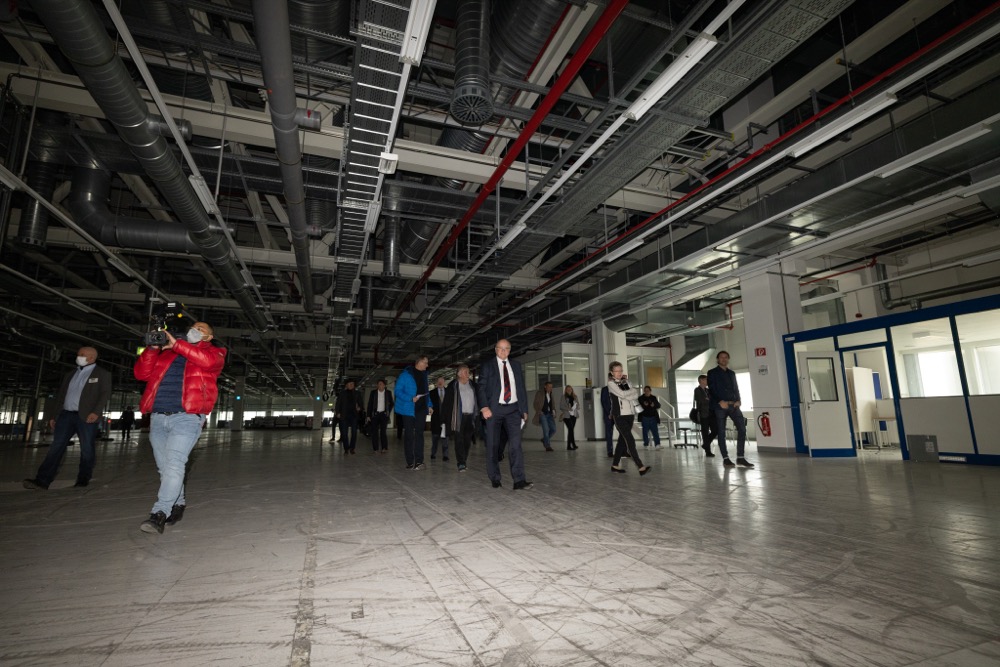Honest electric mobility – Neutrino Energy Group secures production facilities in Frankfurt/Oder
Frankfurt/Oder- Pi technology is making rapid progress and is about to take a decisive step, which was made public on Wednesday, November 24, 2021.
The future of honest electromobility has begun; the generous production areas for future manufacturing are already owned by the German-American research company Neutrino Energy Group – on Brandenburg soil and without any subsidies or support from public authorities.
“After the technical development so far has been predominantly driven forward in India with the C-Met Institute there, it is important for us to also set an exclamation mark at the location in Germany,” emphasized Holger Thorsten Schubart, CEO of the Neutrino Energy Group, in a press conference at the new production facility in Frankfurt/Oder.
Future mobility without fuel and charging stations
The patents for the globally protected Pi brand have been filed, and the plans are technically mature: Pi electromobility is an absolute leap forward innovation that is poised to realize the vision of mobility without a gas station or charging station in the next few years.
The so-called Pi-Car will be the world’s first electric vehicle whose body is made entirely of the ultra-light and super-hard miracle material carbon, in which the neutrinovoltaic cells are directly integrated. The energy converters are incorporated into the body in all cavities, as it were, to make the Pi-Car independent of charging stations, battery changes or gas stations.
This technological innovation, namely the collection of energy from a wide variety of sources in the environment, can, if consistently thought through and scaled up, contribute to solving global energy problems and help achieve climate targets in Germany and worldwide.
Questionable environmental friendliness
Current electric vehicles are considered particularly environmentally friendly. However, this is a questionable claim. After all, environmental friendliness is primarily determined by how the electricity for charging is generated. If the electricity is produced by burning fossil fuels, electric cars can only be considered pseudo-ecological. Without exhaust, the electric car produces no direct exhaust, but the chimneys of the power plants used to generate electricity by burning fossil fuels smoke all the more fiercely.
“It would be more accurate to say that the e-vehicles currently in production are the starting point for the conversion of internal combustion engine cars to carbon-free transportation in the future. But even in the initial phase, the switch to electric vehicles is already ecologically feasible in two cases,” Schubart said, “namely if the vehicles are predominantly charged with electricity produced without CO2 emissions, or if the electric vehicle will provide its own electricity, as is the case with Pi technology.”
Mobile “cosmic” charging station
Prof. Dr. R. Strauß, member of the scientific advisory board of the Neutrino Energy Group, explains the thought process impressively: “Every day, invisible radiant energy reaches us for more than 5,000 years of world energy demand, a hitherto completely untapped potential – more energy in a single day, by the way, than all the fossil fuels still remaining on earth together represent. Pi technology will make technical solutions available in which the body of a vehicle contains the technology to convert part of this radiation and also heat differences into electricity. Like a solar cell, as it were, but one that functions even in complete darkness. This is made possible by a quantum mechanical 2D working tool, a transducer consisting of multilayered doped silicon, in whose interstices special graphene layers are set into oscillations and resonances by external influences.
Pi-Car: worldwide protected trademark
The name Pi-Car has been secured as a worldwide trademark by the Neutrino Energy Group. In the future, however, Pi will not only stand for endless driving, but also for endless energy conversion in the housings of electrical devices of basically any size. It’s about autonomous decentralized base-load capable energy supply. “We want to continue to extensively test and optimize what is possible there over the next few years. The new Frankfurt/Oder site offers us space for a state-of-the-art research and development center,” explains Schubart.
In addition, the Neutrino Energy Group, together with an Australian partner, is starting a new type of dry cell battery production in the existing three-story industrial facility, environmentally friendly energy storage units with up to 25,000 charging cycles that are ideal for use as buffer storage for Pi technology.

In the future, the third floor will be used to develop so-called smart tuning parts for existing electric vehicles, components that can be used to convert energy for additional range. The former solar cell manufacturing facility offers excellent spatial conditions for this.
“In addition to the purchase price for the plant, we have provided around 500 million euros. in order to be able to press ahead with further developments independently and in peace over the next few years,” says Holger Thorsten Schubart.
“Today, it is still difficult to predict exactly when the first series of the Pi-Car electric car will be produced, but there is no doubt that the decisive steps have already been taken to introduce the new Pi technology, the most ambitious vision of infinite green energy. The market potential of this technology is as infinite as the number Pi itself,” Schubart is convinced.





